Local News
Jewish Child and Family Service holds successful Annual General Meeting – online
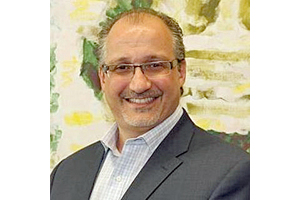
By BERNIE BELLAN
In covering Annual General Meetings over the years I always try and find something different about which I can write – so that an article like this doesn’t end up being simply a repeat of previous years’ reports.
Of course, the fact that Jewish Child and Family Service, like the Jewish Foundation two weeks prior, held its AGM via Zoom (on June 24) is notable in itself. And, like the Jewish Foundation meeting, one must offer congratulations to the organizers of the meeting for how smoothly it ran (thanks in no small part to JCFS Executive Director Al Benarroch, who demonstrated quite a familiarity with technology during the course of the meeting).
Again, however, as was the case with the Jewish Foundation AGM, while the opportunity was presented to viewers to pose questions via the “chat” function that is available on Zoom, no questions were asked. For a wretched news reporter like me there is always the temptation to ask questions that have nothing to do with what is being covered during an Annual General Meeting, but are extremely relevant to the functioning of particular Jewish organizations – but, since those issues weren’t raised during the AGM – I kept my finger off the chat button.
Instead, I exchanged emails with Al Benarroch subsequent to the AGM. Al dealt with some issues that were not covered during the AGM in his email to me.
One of the issues that I raised in my email to Al was that, during the Jewish Foundation’s AGM, the subject that was of greatest interest to me was simply declared beyond the scope of that meeting by Foundation Board Chair Richard Yaffe, i.e., How much assistance have specific organizations received and are going to receive during the ongoing pandemic? (The Jewish Foundation has already disbursed $400,000 to Jewish organizations and will be disbursing $200,000 more sometime soon in the near future. According to Jewish Foundation Board Chair Richard Yaffe, however, we’ll have to wait until next year’s AGM to find out who got what. Now that’s what I call transparency!)
As for the Jewish Child and Family Service, heck, they’re also a well-run organization, – just like the Jewish Foundation, but there was no discussion of two issues hovering over JCFS that have been brought to the fore many times in the past.
While there wasn’t anything in the 2019-20 financial statement to raise any concerns during the JCFS’s AGM, there was also no reference at any time during the meeting to either the JCFS’s need for expanded office space, nor to the supposed plan developed years ago to build an addictions centre.
In the fall of 2019, for instance, this paper reported that JCFS had outgrown its existing office space and was desperately in need of new space.
Following is an excerpt from an interview I conducted with JCFS Executive Director Al Benarroch back in September 2019:
JP&N: … is there any news about where you might be going (to open another office)?
Benarroch: At our May general meeting we struck a task force that was asked to come back in a short period of time (by this September) with a plan. We’ve already looked at about half a dozen properties in and around about a 5-kilometre radius to the campus – in addition to having discussions with the Federation and the Asper Campus what can we do in this facility. And, are there any plans to expand the footprint of this campus if, in fact, the Federation’s strategic planning has said we have to grow services in many areas?
The strategic planning’s report talked about expanding services in education, in mental health, in support for seniors. If, in fact, we’re going to expand these services, where are they going to go.
…we’ve been looking for roughly 3,000 more square feet of space. We have a footprint right now of roughly 5,000 square feet for over 40 staff. We’ve given up a board room here. It’s been taken over by older adult service staff. We have a conference room which is adjacent to the board room; we’ve moved two staff in there.
Yesterday I gave up my office for the entire morning so that staff could interview clients.
We need to relieve the pressure we’re facing right now – yet alone plan for expanding and growing.
Whatever space we’d be looking at would be temporary. It’s now 22 years that we’ve been in this facility. The campus has taken over squash courts, it’s taken over a museum – internally, to accommodate the growth in services. Maybe it’s time now to look at growing outside this building, whether it’s on to the land – although apparently there are issues around digging on the land.
However, despite the issue of the JCFS’s need for more space, nary a word was mentioned about that during the AGM.
In his email to me following the AGM, Al Benarroch had this explanation why there was no mention of the lack of adequate space for JCFS: “This was not mentioned, as most of this was put on hold as a result of COVID-19, which has understandably taken priority. We shifted our focus to insuring that services are being provided to our most vulnerable. With staff working remotely and face-to-face & group programs being suspended at this time, space needs have not been a concern to service delivery at this time.
“Even in the face of the pandemic, we continue to work on our strategic planning goals, of which space needs remain a high priority. We will continue with this planning and resume more activity once the pandemic hopefully passes.”
As well, I’ve been writing for years about the supposed plan by JCFS to greatly expand addiction services. In 2015, when the National Council for Jewish Women announced that it was going to sell the building that housed the Gwen Secter Centre, the ostensible reason was to use the money to create a “Winnipeg Jewish Recovery and Resource Centre”. According to an article written by Myron Love back then, “The NCJW-supported residence, operated in conjunction with Winnipeg’s Jewish Child and Family Service, would provide a home environment with a Jewish atmosphere that would be open to both Jewish and non-Jewish residents with addiction issues.”
We haven’t heard much about that project either – although the National Council for Jewish Women did sell the building that houses the Gwen Secter Centre for $900,000.
Al Benarroch did however, offer this explanation for the lack of movement on building an addictions centre in his email: “I’m sure you can appreciate that non-profit organizations move at a slower pace and have to be much more accountable to donors and funders in planning these things, than would a project launched in the private sector.”But, my bringing up past plans shouldn’t get in the way of lauding the JCFS for another successful year (and the JCFS’s fiscal year ended March 31, 2020, just as the lockdown brought about by the COVID-19 pandemic was setting in.)
In recent issues I’ve written about how JCFS has responded so quickly to many of the needs that have developed within our community as a result of the pandemic, whether it be taking its counseling program online or offering food assistance to those in need, again working closely with the Gwen Secter Centre in coordinating the providing of shopping services to individuals who either can’t get out themselves or actual meals, as the case may be.
During the JCFS AGM, Al Benarroch referred to the manner in which JCFS has adapted to the reality of not being able to see clients in person, noting that “All staff transitioned to working from home. Food and pantry deliveries have ramped up.”
But even before the pandemic brought about such drastic changes in how we are all leading our lives, JCFS had been continuing to deal with growing demand for its many services.
Benarroch cited some figures to illustrate how vital a role JCFS has been playing in our community. In the 2018-19 fiscal year, JCFS:
• handled over 2500 cases involving 5700 individuals
• provided assistance to 77 immigrant families
• assisted an additional 50-60 Yazidi refugee families
• assisted over 500 frail seniors, including Holocaust survivors
• provided help for 150 clients with mental health or addiction issues
• provided counseling services for 200 individuals
• tended to the needs of 23 children in foster care
• helped another 200 individuals requiring financial assistance or food from the JCFS’s food pantry
• in cooperation with the Gwen Secter Centre, provided 150 Passover hampers
• provided seven inmates at Stony Mountain Penitentiary with kosher for Passover meals
Those were just some of the accomplishments Benarroch cited during his report.
In other news, outgoing JCFS President Sherry Lercher Davis reported that the JCFS’s endowment fund at the Jewish Foundation had grown by over $1 million in the fiscal year just passed – from $2 million to $3 million. As is the case with other Jewish organizations here, the Jewish Foundation has been encouraging them to create endowment funds that will provide a solid financial foundation for years to come.
In his Treasurer’s report, Al Shpeller noted that, once again, the JCFS operated in the black, with an excess of revenues over expenses of $28,447. It should be noted that the JCFS held a very successful “Community of Caring Gala” in 2018. During the 2019-20 fiscal year the proceeds from that gala were transferred to the Jewish Foundation, which is administering the JCFS endowment fund.
In one final piece of business, outgoing JCFS President Sherry Lercher Davis passed the gavel (figuratively, since everyone participating in the meeting was in their own home, save Al Benarroch, who was doing a masterful job coordinating the meeting from the JCFS offices) to incoming President Ari Hanson, who will now take on that role for a two-year term.
Local News
Further to the Simkin Centre’s financial situation
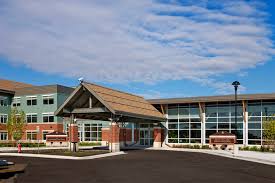
By BERNIE BELLAN A while back I published an article about the deficit situation at the Simkin Centre. (You can read it at “Simkin Centre deficit situation.“) I was prompted to write that particular article after reading a piece written by Free Press Faith writer John Longhurst in the August 5 issue of the Free Press about the dire situation personal care homes in Winnipeg are in when it comes to trying to provide their residents with decent food.
Yet, Longhurst made one very serious mistake in his article when he wrote that the “provincial government, through the Winnipeg Regional Health Authority, has not increased the amount of funding it provides for care-home residents in Manitoba since 2009.”
In fact, the WRHA has given annual increases to personal care homes, but its allocations are not broken down by categories, such as food or salaries. As a spokesperson for the WRHA explained to me in an email: “PCHs receive per diem global operating funding based on the number of licensed beds they operate. This funding model is designed to support the full range of operating costs associated with resident care, including staffing, food services, utilities, building operations, and other day-to-day expenses.”
Now, one can make a perfectly valid argument that the level of funding from the WRHA has not kept up with inflation, especially inflation in food costs, but the Simkin Centre is in an even more precarious position because of the skyrocketing cost of kosher food.
“In recent years,” according to an article on the internet, “the cost of kosher food has increased significantly, often outpacing general food inflation due to unique supply chain pressures and specialized production requirements.”
Yet, when I asked Laurie Cerqueti how much maintaining a kosher facility has cost the Simkin Centre, as I noted in my previous article about the deficit situation at Simkin, she responded: “approximately $300,000 of our deficit was due to food services. I do not have a specific number as far as how much of the deficit is a result of kosher food…So really this is not a kosher food issue as much is it is an inflation and funding issue.”
One reader, however, after having read my article about the deficit situation at Simkin, had this to say: “In John Longhurst’s article on Aug 5, 2025 in the Free Press, Laurie (Cerqueti) was quoted as saying that the annual kosher meal costs at Simkin were $6070 per resident. At Bethania nursing home in 2023, the non-kosher meal costs in 2023 were quoted as $4056 per resident per year. Even allowing for a 15% increase for inflation over 2 years, the non-kosher food costs there would be $4664.40 or 24% lower than Simkin’s annual current kosher food costs. If Simkin served non-kosher food to 150 of its 200 residents and kosher food to half of its Jewish residents who wish to keep kosher, by my calculation it would save approximately $200,000/year. If all of Simkin’s Jewish residents wished to keep kosher, the annual savings would be slightly less at $141,000.”
But – let’s be honest: Even though many Jewish nursing homes in the US have adopted exactly that model of food service – where kosher food is available to those residents who would want it, otherwise the food served would be nonkosher, it appears that keeping Simkin kosher – even though 45% of its residents aren’t even Jewish – is a “sacred cow” (pun intended.)
So, if Simkin must remain kosher – even though maintaining it as a kosher facility is only adding to its accumulated deficit situation – which currently stands at $779,426 as of March 31, 2025,I wondered whether there were some other ways Simkin could address its deficit while still remaining kosher.
In response to my asking her how Simkin proposes to deal with its deficit situation, Laurie Cerqueti wrote: “There are other homes in worse financial position than us. There are 2 homes I am aware of that are in the process of handing over the keys to the WRHA as they are no longer financially sustainable.”
I wondered though, whether the Simkin Centre Foundation, which is managed by the Jewish Foundation of Manitoba might not be able to help the Simkin Centre reduce its deficit. According to the Jewish Foundation’s 2024 annual report, The Saul and Claribel Simkin Centre Foundation, which is managed by the Jewish Foundation, had a total value of $11,017,635.
The Jewish Foundation did distribute $565,078 to the Simkin Centre in 2024, but even so, I wondered whether it might be able to distribute more.
According to John Diamond, CEO of the Jewish Foundation, however, the bylaws of the Foundation dictate that no more than 5% of the value of a particular fund be distributed in any one year. There is one distinguishing characteristic about the Saul and Claribel Simkin Centre Foundation, in that a portion of their fund is “encroachable.” The encroachable capital is not owned by JFM. It is held in trust by JFM but is beneficially owned by Simkin, similar to a “bank deposit”. While held by the JFM, these funds are included in the calculation of Simkin’s annual distribution.
I asked John Diamond whether any consideration had been given to increasing the distribution that the Jewish Foundation could make to the Simkin Centre above the 5% limit that would normally apply to a particular fund under the Foundation’s management.
Here is what John wrote in response: “The Simkin does have an encroachable fund. That means that at their request, they can encroach on the capital of that fund only (with restrictions). This encroachment is not an increased distribution; rather, it represents a return of capital that also negatively affects the endowment’s future distributions.
”It is strongly recommended that encroachable funds not be used for operating expenses. If you encroach and spend the capital, the organization will receive fewer distribution dollars in the next year and every year as the capital base erodes. Therefore, the intent of encroachable funds is for capital projects, not recurring expenses.”
I asked Laurie Cerqueti whether there might be some consideration given to asking for an “encroachment” into the capital within the Saul and Claribel Simkin Centre Foundation?
She responded: “We are not in a position where we are needing to dip into the encroachable part of our endowment fund. Both of our Boards (the Simkin Centre board and the Saul and Claribel Simkin Centre Foundation board) are aware of our financial situation and we are all working together to move forward in a sustainable way.”
At the same time though, I wondered where donations to the Simkin Centre end up? Do they all end up in the Simkin Centre Foundation, for instance, I asked Laurie Cerqueti on December 15.
Her response back then was: “All donations go through our Foundation.”
I was somewhat surprised to read that answer, so I asked a follow-up question for clarification: “Do all donations made to the Simkin Centre end up in the Simkin Centre Foundation at the Jewish Foundation?”
The response this time was: “No they do not.”
So, I asked: “So, how do you decide which donations end up at the Foundation? Is there a formula?”
Laurie’s response was: “We have a mechanism in place for this and it is an internal matter.”
Finally, I asked how then, the Simkin Centre was financing its accumulated deficit? Was it through a “line of credit with a bank?” I wondered.
To date, I have yet to receive a response to that question. I admit that I am puzzled that a personal care home which has a sizeable foundation supporting it would not want to dip into the capital of that foundation when it is facing a financial predicament. Yes, I can see wanting the value of the foundation to grow – but that’s for the future. I don’t know whether I’d call a $779,425 deficit a crisis; that’s for others to determine, but it seems pretty serious to me.
One area that I didn’t even touch upon in this article, though – and it’s something I’ve written about time and time again, is the quality of the food at the Simkin Centre.
To end this, I’ll refer to a quote Laurie Cerqueti gave to John Longhurst when he wrote his article about the problems personal care homes in Winnipeg are facing: “When it comes to her food budget, ‘we can’t keep making the same number of bricks with less straw.’ “
Local News
Exclusive: Security Enhancement Fund to be announced by Province in coming days
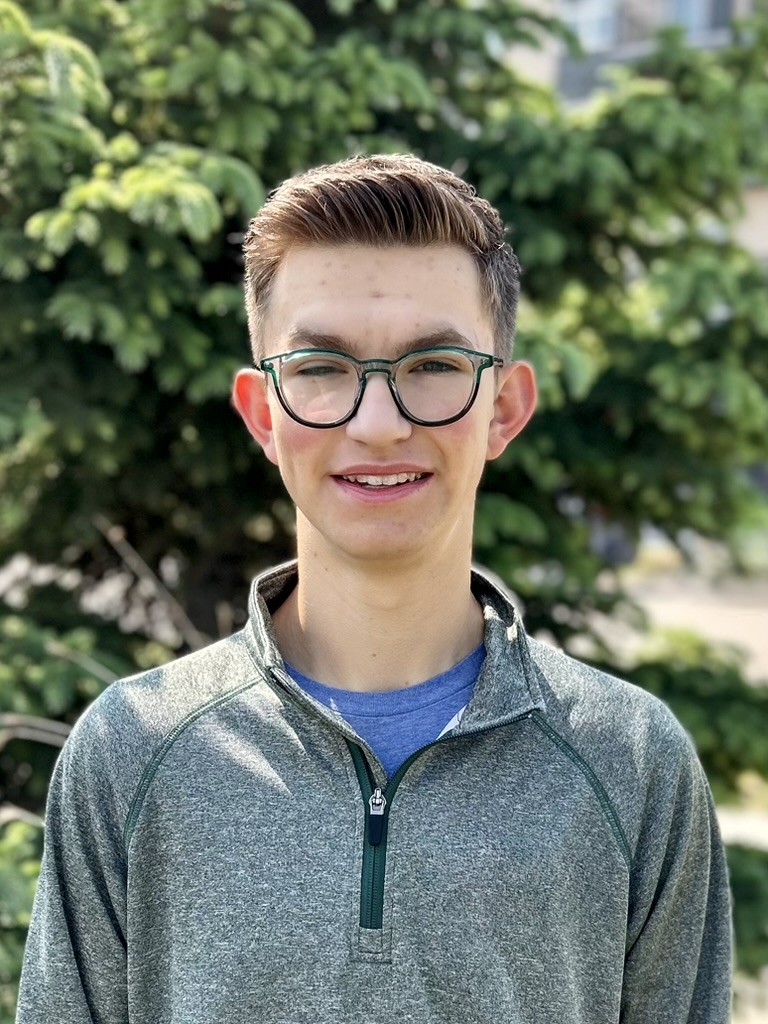
By NOAH STRAUSS The province is set to announce a new program called the Security Enhancement Fund, which will provide funding to religious and faith groups to improve security at institutions such as synagogues and mosques. In an exclusive interview, Minister of Justice Matt Wiebe outlined the plan and detailed what the province has already done to help protect Jewish Manitobans.
“What we want to do is to be able to provide the community with the kind of tools that they need to stay safe and to ensure that everyone in the community feels safe,” said Wiebe.
The fund will provide a missing link between government and religious communities, and
communities will now be able to make their own choices without money being a big restraint.
Essentially, the power will be in the hands of community leaders and not government officials.
The minister noted that the new partnerships will provide the province a better understanding of the needs of every community. Rather than the province making the choices, they are
essentially giving a voice to each community. The grants, totalling $1 million, will provide funds to enhance security at facilities like synagogues.
The Jewish Post reached out to Dr. Rena Secter Elbaze, executive director of Congregation
Shaarey Zedek. “It’s important that the government show us that they’re taking security seriously and stepping up to the plate to make this offer. We will absolutely be applying for grant money,” she said. Elbaze also wants to know whether or not the government will cover the costs of things the synagogue has already spent money on. She noted that the province has, in the past, made grants available to have security guards present.
When speaking about what the Justice Ministry has already done to protect Jewish Manitobans, Wiebe brought up the new special prosecutor that is focusing on hate crimes. Wiebe said thespecial prosecutor works closely with the Winnipeg Police Service “to support investigations and prosecute hate crimes. Wiebe also went on to say how the Department of Education has been helping to fight antisemitism. “The creation of the Holocaust education curriculum is an important step in the right direction,” he said. When asked about Oliver Didtger Ederhof, the individual charged with 14 counts of mischief including vandalism of Shaarey Zedek, Wiebe said decisions like bail and police undertakings are decisions that are in part made by the federal government through the criminal code and policies. “We’re going to continue to advocate for stricter bail reform at the federal level…. I’ve been very clear, we issued clarified directives around bail to our Crown prosecutors.”
The full announcement from the province is expected in the coming days.
Local News
March of the Living 2023 participants form Taste of Hope project to help honour the memory of Holocaust survivor Alex Buckman
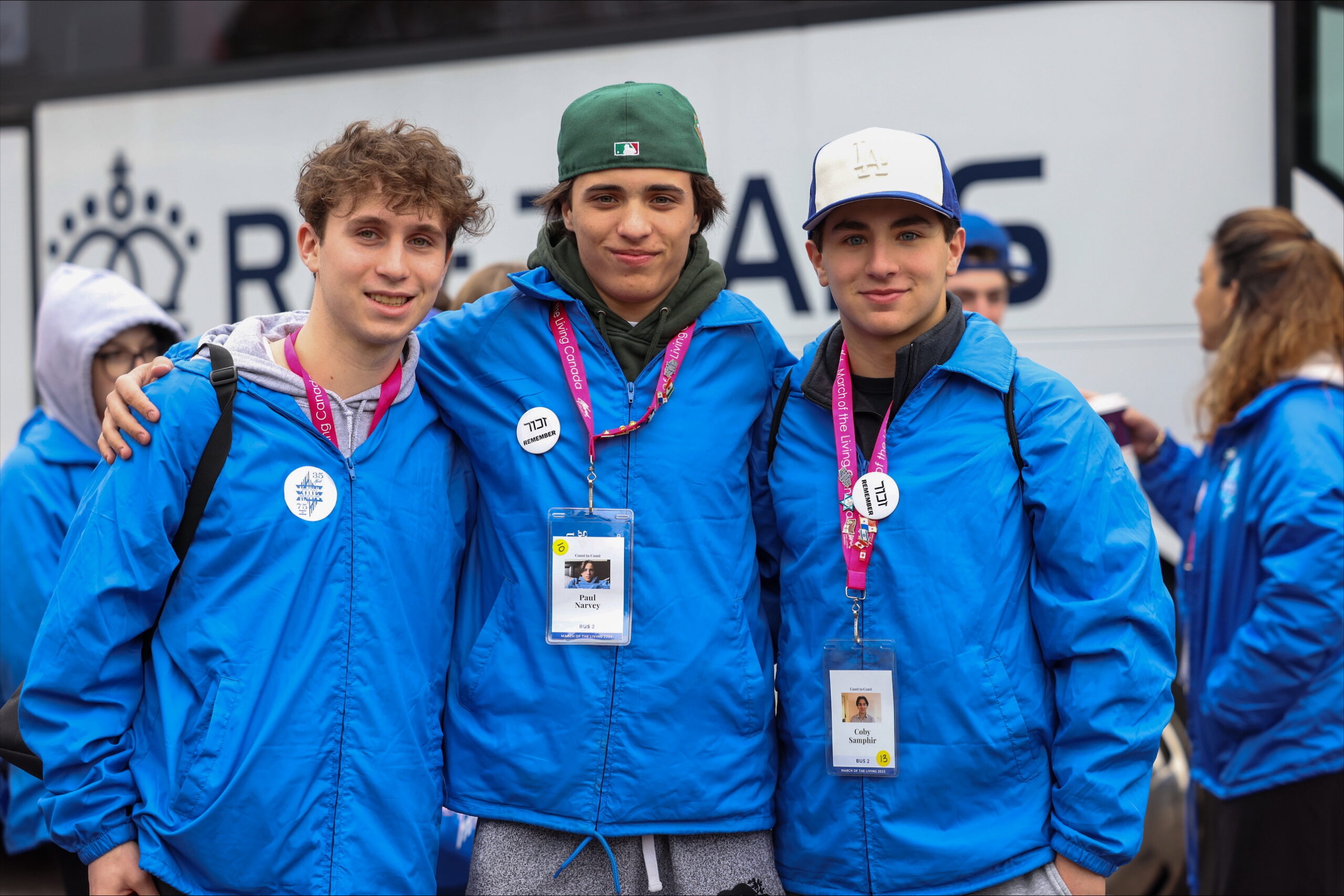
By BERNIE BELLAN The March of the Living is an annual two-week international educational program that brings thousands of students and adults to Poland and Israel to study the Holocaust, Jewish history, and the rise of the State of Israel. Founded in 1988, it features a 3-kilometer silent walk from Auschwitz to Birkenau on Yom HaShoah (Holocaust Remembrance Day).
Attendees on the march are accompanied by adults, some of whom themselves have been Holocaust survivors.
Following the week in Poland, participants travel to Israel to observe Yom HaZikaron (Israel’s Memorial Day) and celebrate Yom HaAtzmaut (Israel’s Independence Day), marking a journey from darkness to life.
For many years the coordinator of the march in Winnipeg was Roberta Malam, working on behalf of the Jewish Federation of Winnipeg. More recently Abby Flackman filled that role, and now the person in charge is Lindsey Kerr.
Since its inception 37 years ago the March of the Living has become a rite of passage for many young Winnipeg Jews who have been able to participate as an organized group from Winnipeg and combine visits to the death camp at Auschwitz-Birkenau in Poland with the subsequent trip to Israel.
Then – the Covid pandemic hit – in 2020, and the March of the Living was put on hold for two years – in 2020 and 2021.
In 2022, the March of the Living resumed, but there was no organized contingent from Winnipeg participating. (There may have been some Winnipeggers who did go on the march that year, but if there were any they would have been part of a general Canadian group since there was no Winnipeg coordinator that year.)
In 2023, however, once again a very large contingent of young Canadian Jews – 51 altogether, of whom approximately two-thirds were from Winnipeg, went on that year’s March of the Living. That particular march was memorable for many reasons, including the fact it was the last full march since 2019 and was to remain the last march to have an organized Winnipeg contingent in the past six years as the years 2024 and 2025 were interrupted by the war in Gaza. (There were smaller marches held in 2024 and 2025, but again there was no organized contingent from Winnipeg.)
Recently, we were contacted by one of the participants of that 2023 march, Ethan Levene, who asked us whether we’d be interested in running what turned out be a very poignant story about one particular aspect of that 2023 March of the Living.
Here is what Ethan wrote:
“In April 2023, the Coast to Coast Canadian delegation of March of the Living was privileged to travel with Holocaust survivor Alex Buckman (z”l). March of the Living is a Holocaust education trip that allows participants to visit and bear witness to the sites of the Holocaust. Unfortunately, while sharing his story in Poland, Alex passed away. However, the impact he left on us students was immeasurable.
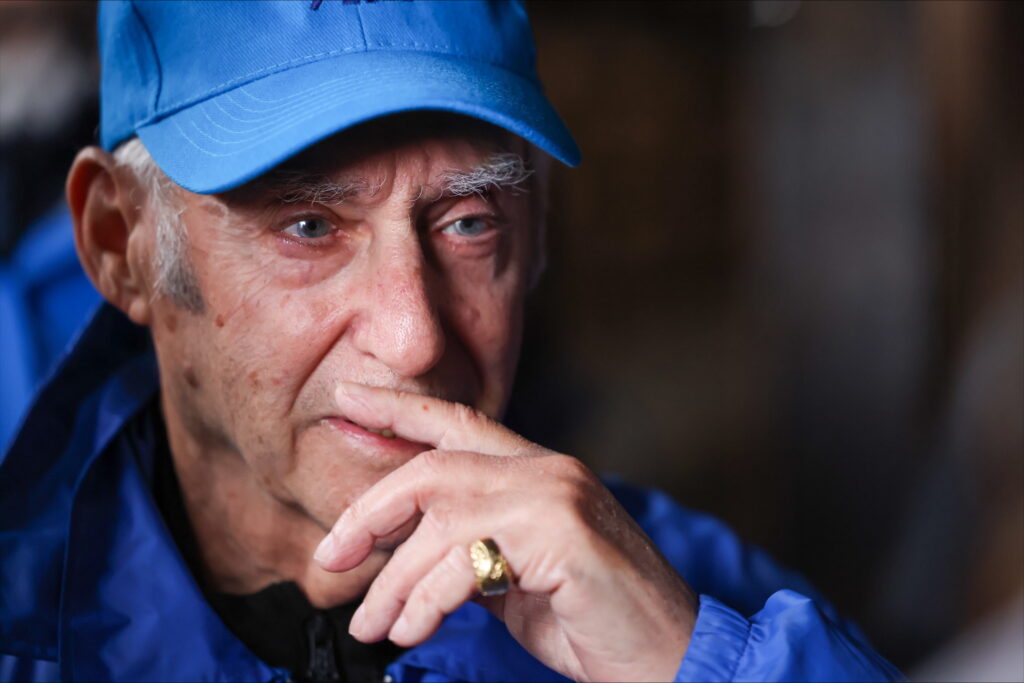
“While speaking to us in Warsaw, Alex told us the story of his Aunt Becky’s gâteau à l’orange (orange cake). While in Ravensbruck concentration camp, his aunt managed to write down this recipe. After his parents’ murder, his Aunt Becky went on to raise Alex after surviving. In addition to sharing his story, Alex tasked us with baking the cake with family and friends.
“Out of this, a group of alumni from our trip have created this project: ‘A Taste of Hope.’ On February 1st, university students from over 5 universities across Canada will come together to bake the gâteau à l’orange and hear Alex’s story. Proceeds from the event and this fundraising page will support the World Federation of Jewish Holocaust Survivors and Descendants. Alex was heavily involved with this organization, whose mission is to both create community for Holocaust survivors and their descendants and educate about the Holocaust to help fight against antisemitism and all forms of bigotry and hate.
“Here is information from our fundraising page for the event – ‘A Taste of Hope’: Fundraising for A Taste of Hope.
Ethan added that “it’s completely student led, all by alumni from our 2023 trip attending university at these various locations across Canada; Winnipeg, London, Kingston, Montreal.”
He also added: “Follow us on instagram@tastehope.“
Here is a link to a CBC story about Alex Buckman: Alex Buckman story
In a subsequent email Ethan gave the names of Winnipeggers who are involved in A Taste of Hope: Ethan Levene (studies at McGill), Zahra Slutchuk, Alex Stoller (studies at Queens), Coby Samphir, Izzy Silver (studies at Waterloo).
He also added names of others who are involved in the project: Jessie Ages, Anneke Goodwin, Lilah Silver, Ella Pertman, Ellie Vogel, and Talia Cherun.
To find out more about March of the Living in Winnipeg go to: March of the Living


